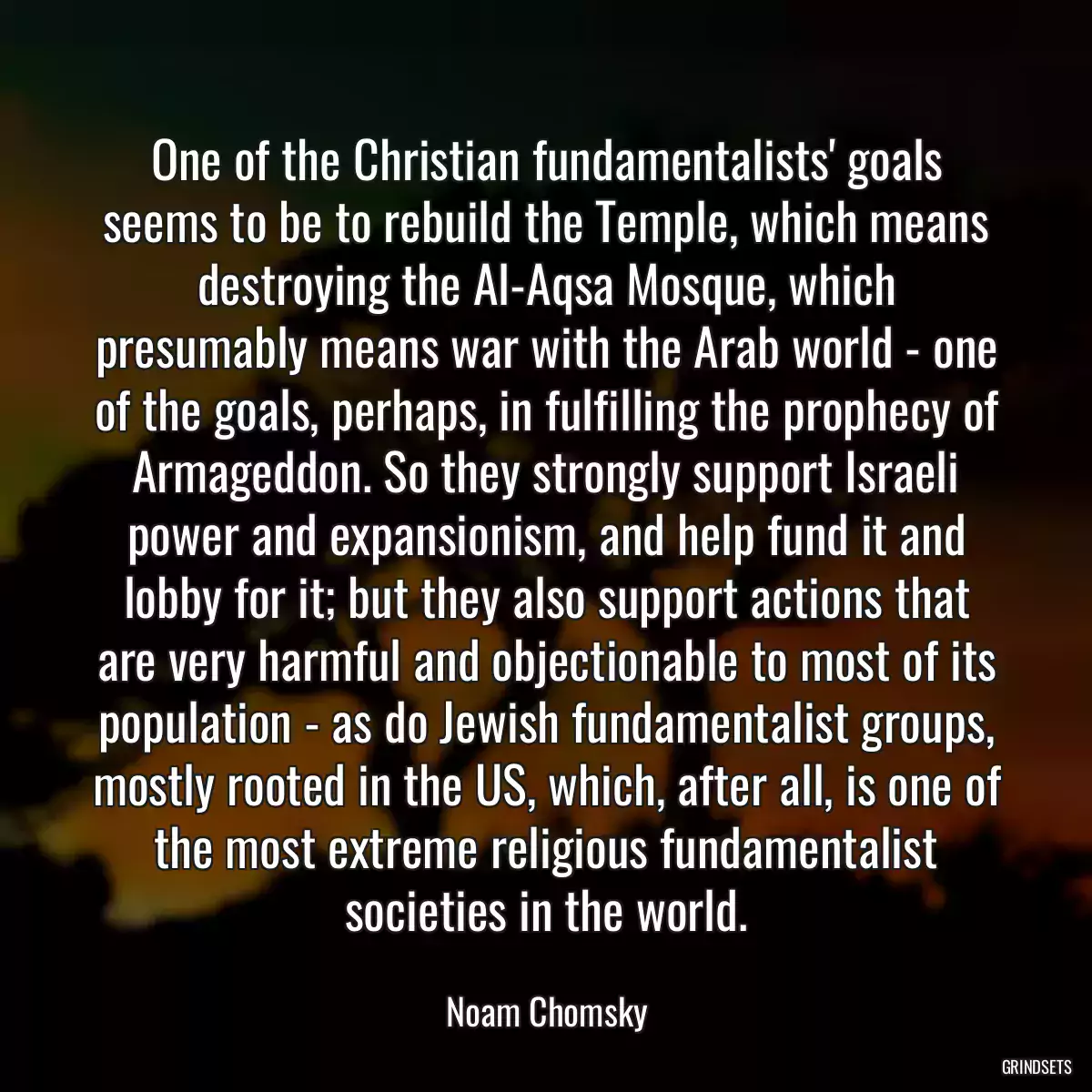
One of the Christian fundamentalists' goals seems to be to rebuild the Temple, which means destroying the Al-Aqsa Mosque, which presumably means war with the Arab world - one of the goals, perhaps, in fulfilling the prophecy of Armageddon. So they strongly support Israeli power and expansionism, and help fund it and lobby for it; but they also support actions that are very harmful and objectionable to most of its population - as do Jewish fundamentalist groups, mostly rooted in the US, which, after all, is one of the most extreme religious fundamentalist societies in the world.